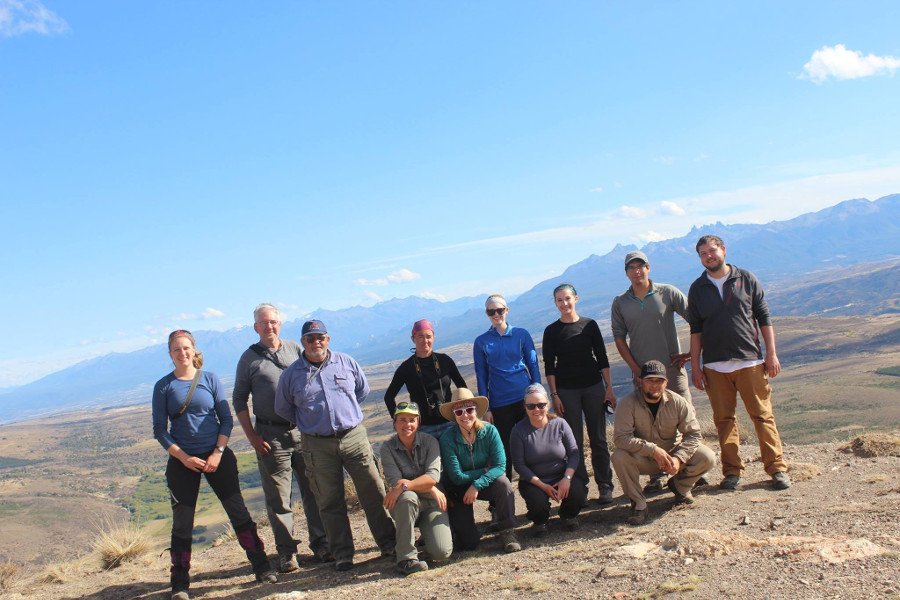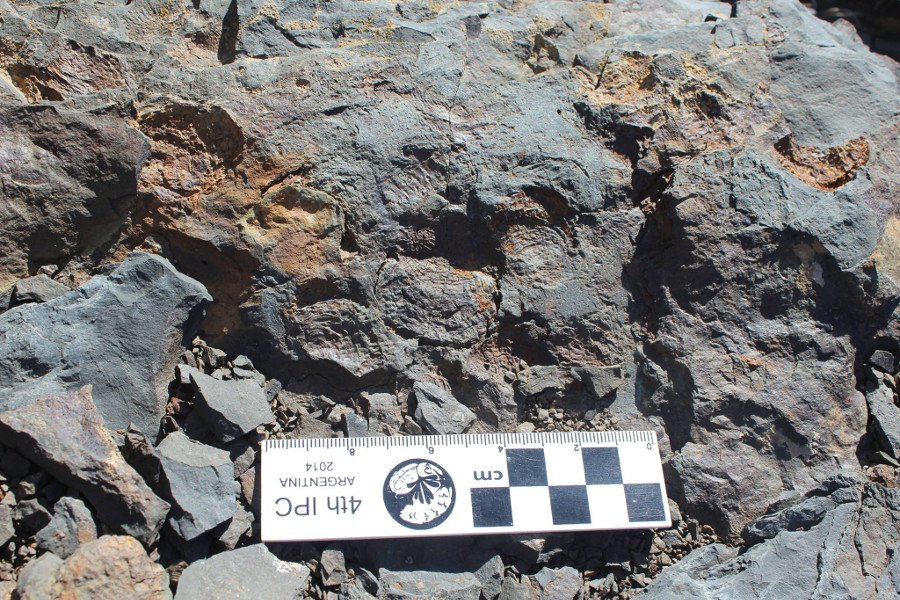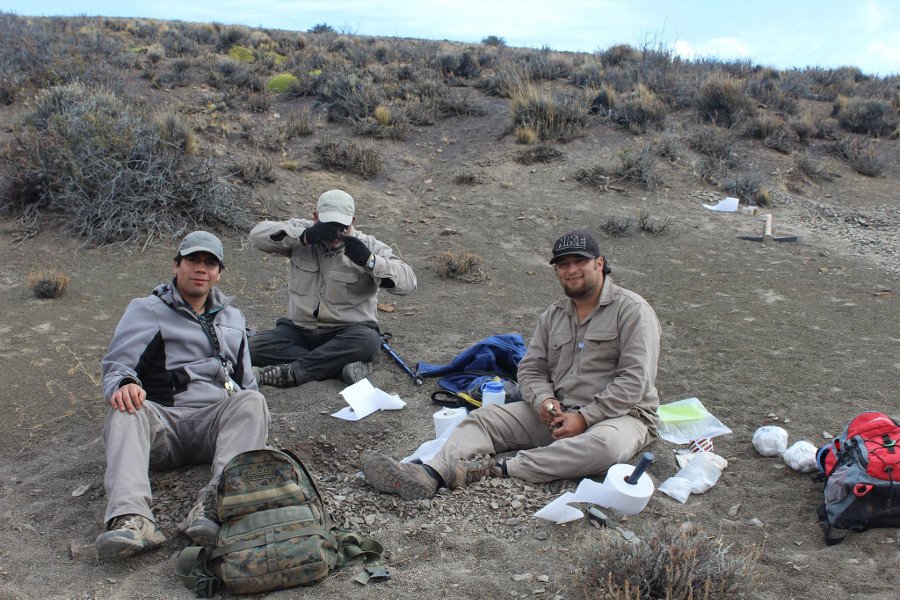A multidisciplinary team of researchers in the search of clues from an ancient ocean in Chubut
About 300 million years ago the Andes hadn´t risen yet, what allowed the current Pacific Ocean cover a great part of West Patagonia. The Sierra de Tepuel area, located 100 km southeast from Esquel city (West of Chubut) is especially rich in fossils from that time, which represents part of the Carboniferous and Permian Periods and has a marine record spanning a continuous temporal interval of practically 70 millions of years. This uninterrupted record of so many millions of years, along with the great amount and diversity of fossils found make this site of great importance for researchers who study this particular time lapse.

Dr. Alejandra Pagani, PhD, (MEF-CONICET), a fossil marine invertebrates´ specialist, has been leading a multidisciplinary team for some years now, which every year travels to that region. “Each of us brings a different point of view into the studies developed in this site: within the team, there are geologists and paleontologists. This allows us to work on three major lines: sedimentary geology, through which we can interpret the environment; biostratigraphy, to understand relative ages; and paleoecology, that allows us understand how these marine ecosystems functioned in the past”, Alejandra explains.

This season the team went on a two weeks´ field trip, aiming to explore the regions in the search of new sites of paleontological interest and to collect fossils, focusing this search on the carboniferous sediments. “We found braquiopods, bivalves, gastropods, corals, bryozoan (colonial invertebrates), microscopic crustaceans, hyolites (an extinct mollusk group), trilobites´ remains, sea lilies (related to starfish) and fish scales, among some of the things that could be identified in the field”, Alejandra describes and then adds “on a great scale, the objective of this collaborative work is to reconstruct the communities along time and then compare them with others of the same age but from other regions in the world. By developing more field trips and studies in the region, we´ll be able to have a more comprehensive idea of how the sea was in the past and so understand ancient ecosystems´ dynamics”.

On this occasion, the team was formed by Dr Alejandra Pagani, Dr Arturo Taboada (CONICET-CIEMEP Esquel), Dr Karina Pinilla (UNLP, La Plata), MSc Cristian Pardo (CONICET-CIEMEP), the Biology Student César Taboada (UNPSJB-MEF, Trelew), and Dr. John Isbell, Margaret Fraiser with the Geosciences Department in Wisconsin-Milwaukee University (USA) along post-graduate students Joseff Martinez, Kate Gigstad, Libby Ives, Natalie McNall and Lydia Albright (UWM).
